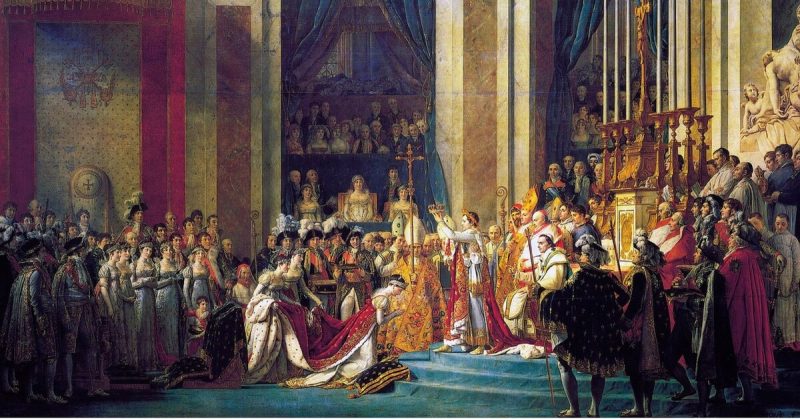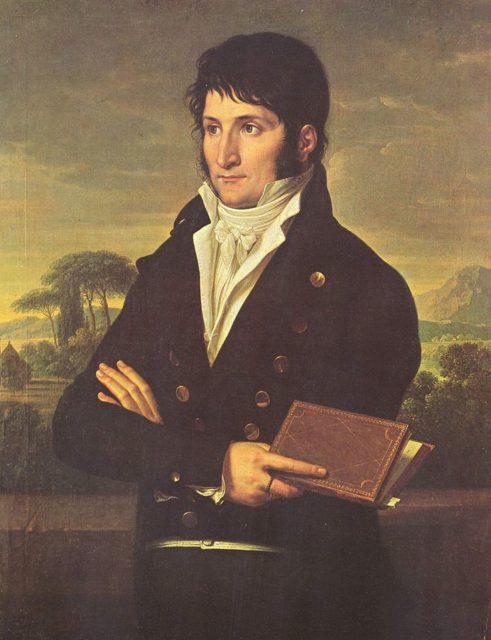Like many rulers throughout history, Napoleon made use of his family. He discussed issues with them, and they were supporters and strategic assets in his political schemes.
Letizia
Napoleon’s mother, Letizia Bonaparte, was a formidable figure herself. A member of Corsica’s lower nobility, she helped to raise and guide her son. When the family home was ransacked and their lives threatened by bandits in 1793, she led her children to safety. She was no meek and mild housewife.
Once he was in power, Napoleon did not leave his mother behind. She continued to be a source of guidance as he rose through the military and political ranks. He sought her wisdom to which he returned again and again.
Joseph
The oldest of the Bonaparte brothers, Joseph was different from Napoleon in temperament. He was politically active and astute about what needed doing. He was one of Napoleon’s supporters during the critical Brumaire coup.
Joseph was gentler than his brother, far less inclined to turn to war as a source of power. He opposed Napoleon’s strategy of endless conflict with their neighbors. He clung to many of the principles of the French Republic and sought happiness rather than the grandeur that came to mark his family.
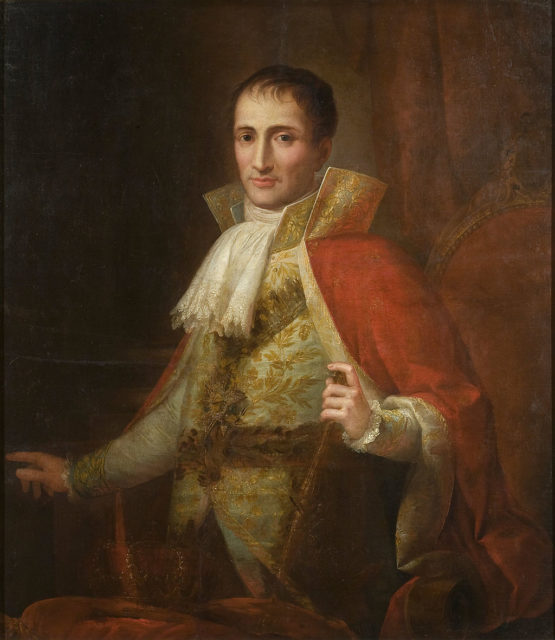
Despite their differences, Joseph was a reliable ally who Napoleon turned to good use. He was made Commissioner of War for the Army of Italy. This allowed him to accumulate wealth and useful contacts among the artists commissioned to celebrate Napoleon’s achievements. He became military commander and then King of Naples, giving Napoleon tighter control over the Italian Peninsula.
When events became involved in Spain, Napoleon moved Joseph there as King, to try to win over the hearts of the population while ensuring smooth government. Unlike Naples, Joseph was not popular in Spain. As the British advanced up the Peninsula, he abdicated and fled.
Lucien
The third of the Bonaparte brothers, after Joseph and Napoleon, Lucien was the revolutionary firebrand of the family. An eloquent writer and speaker, who showed skill in influencing both politicians and the mob, he played a key role in Napoleon’s rise.
Lucien was part of the conspiracy that led to Napoleon’s installation as First Consul. He spread pamphlets around Paris warning of the dangers of Jacobinism and preparing people to support the coup. He spoke eloquently in the chambers of government, persuading men to back the new regime. When a vote to confirm the consulate did not go as decisively as they had wanted, Lucien published fake figures which gave the regime an air of legitimacy.
Once in power, Napoleon made Lucien Minister of the Interior. In this role, Lucien ran a spy ring, keeping an eye out for plots against his brother.
However, over time, they became distant and Lucien eventually left the inner circle. His politics were too radical for the Emperor, some of whose activities went against Lucien’s revolutionary principles.
Louis
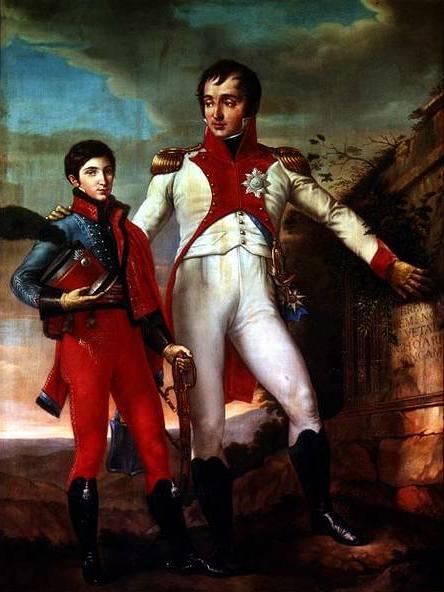
Another brother Louis, like Lucien, proved less obedient than Napoleon had hoped.
Having conquered Holland, Napoleon put Louis on the Dutch throne. As in Naples and Spain, this was a way of ensuring loyalty in a conquered land. He presumed Louis, as his brother and a Frenchman, would do as he was told.
It was a challenging assignment. The Dutch were not used to the central government of a King with strong power.
Louis made as good a job of it as anyone could. He simplified and strengthened the Dutch state, increased education, and stood up for Dutch interests. He neglected areas Napoleon was more concerned with, such as clamping down on smuggling between Holland and Britain.
As a result, Louis was removed from his post after only four years. Napoleon could not afford to have a disobedient puppet ruler, even if he was his brother.
Jerome
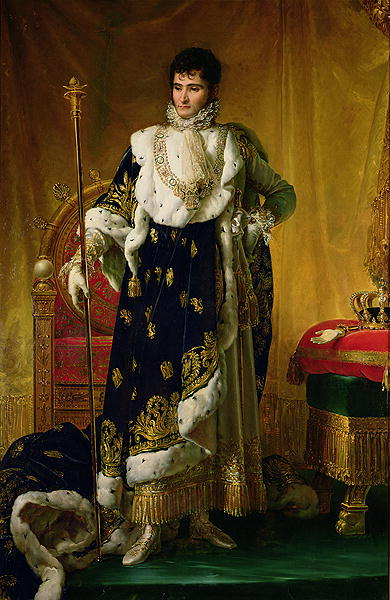
The youngest Bonaparte brother showed the least strength of character. Somewhat spoilt and with a taste for luxuries, Jerome had none of the positive impacts as a ruler that Joseph and Louis had.
Jerome’s Kingdom was Westphalia; another state cobbled together by Napoleon out of territory taken from Austria – this time in the Germanic heart of Europe. Jerome made the best of his royal lifestyle and for the most part avoided provoking his brother.
He also acted as a military commander, both during the invasion of Russia and the Hundred Days War. At Waterloo, he led the French attack on Hougoumont. There he over-committed French forces, bogging them down in the fight.
Josephine
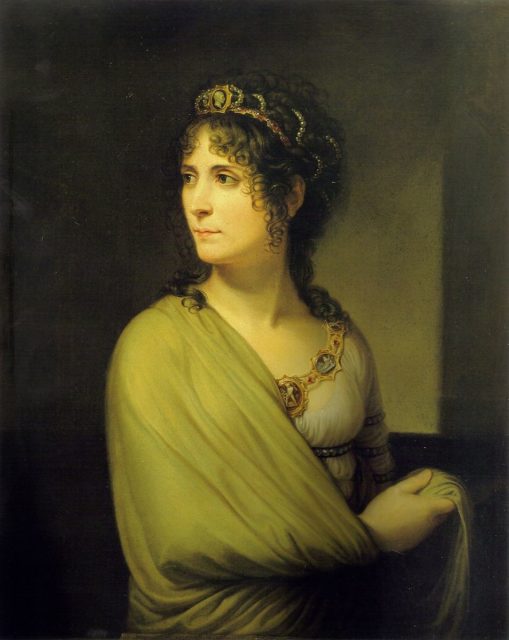
Napoleon’s first wife, Josephine Beauharnais, was a skilled influencer long before she met her husband. Caught up in the elite social life of Paris, she had connections throughout the government and military. Having married Napoleon, she used these connections to help his political maneuverings.
As the wife of the First Consul, and then as Empress, Josephine often found herself alone when Napoleon was on campaigns. When they were together, either at home or abroad, she was a vital ally. The balls and parties she oversaw added glamor to the regime. In Strasbourg, these events were an opportunity for German Princes to pay homage to their French overlord.
Josephine provided the glamorous social glue of the imperial court. However, in one important regard, she could not give Napoleon what he wanted. The couple were unable to conceive and so provide an heir to the Empire.
After careful discussion, they separated.
Marie-Louis
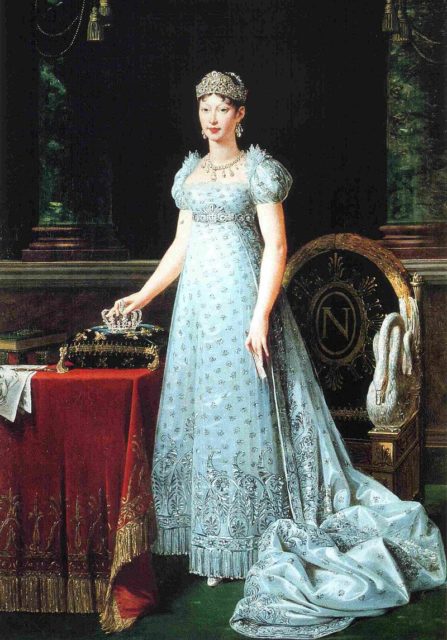
In 1810, Napoleon married his second wife – Marie-Louis, daughter of the Austrian Emperor Francis I and niece of Marie Antoinette. It was a match which must have startled old-school republicans, as it tied France’s regime to that of the old guard.
Marrying Marie-Louis served two purposes, but success was achieved in only one.
Firstly, this was a chance to provide a son and heir. The young Marie-Louis obliged, and in March 1811 Napoleon’s son was born. In its other purpose – keeping Austria from opposing France – the marriage failed. Napoleon’s ambitions had grown too great.
However many family members he threw into the mix, he was unable to hold back the tide of resentment against him among the great powers. Soon, his regime would end, and his son would never inherit the throne.
Source:
Alan Forrest (2011), Napoleon.
